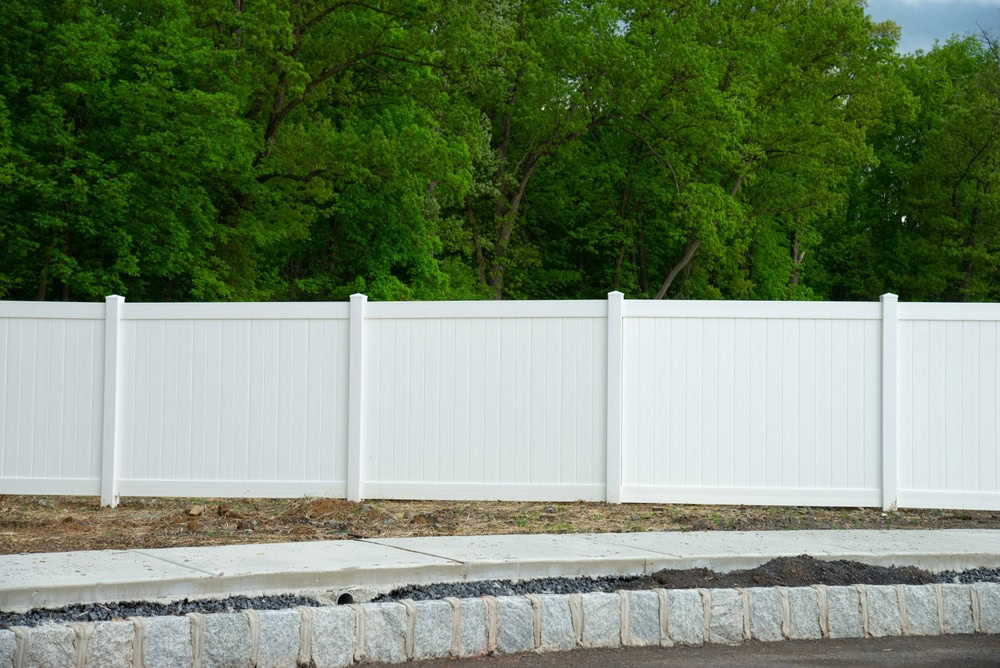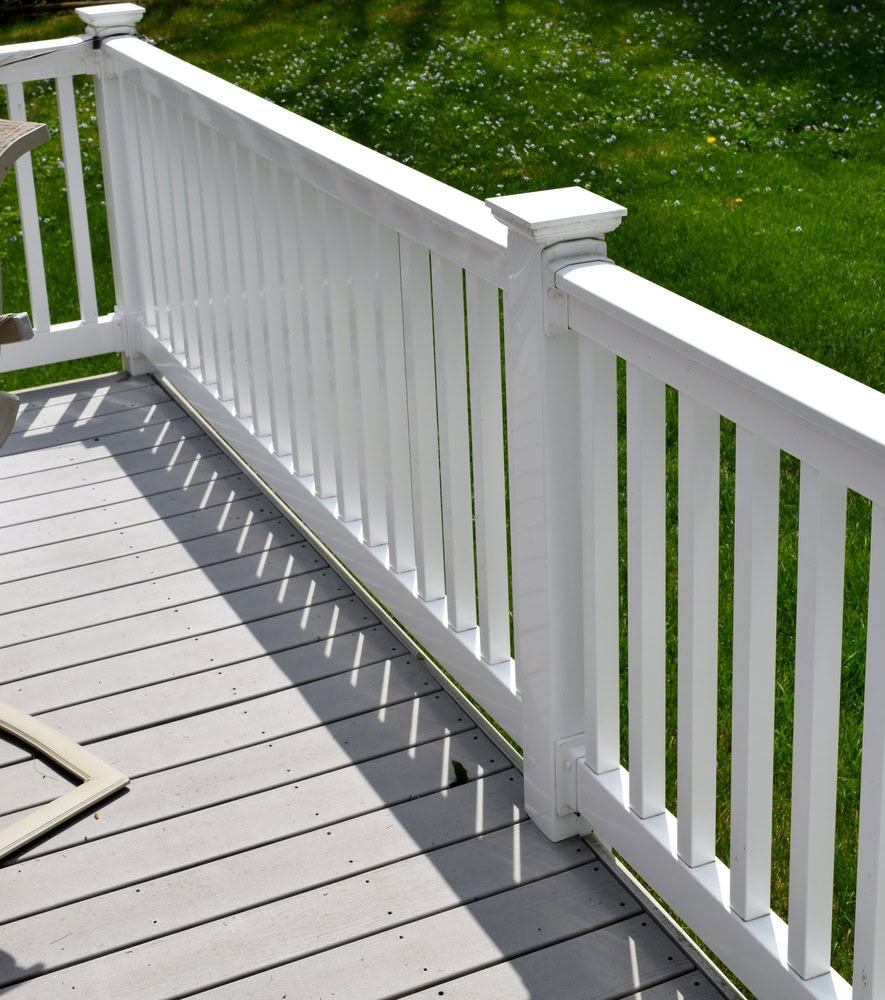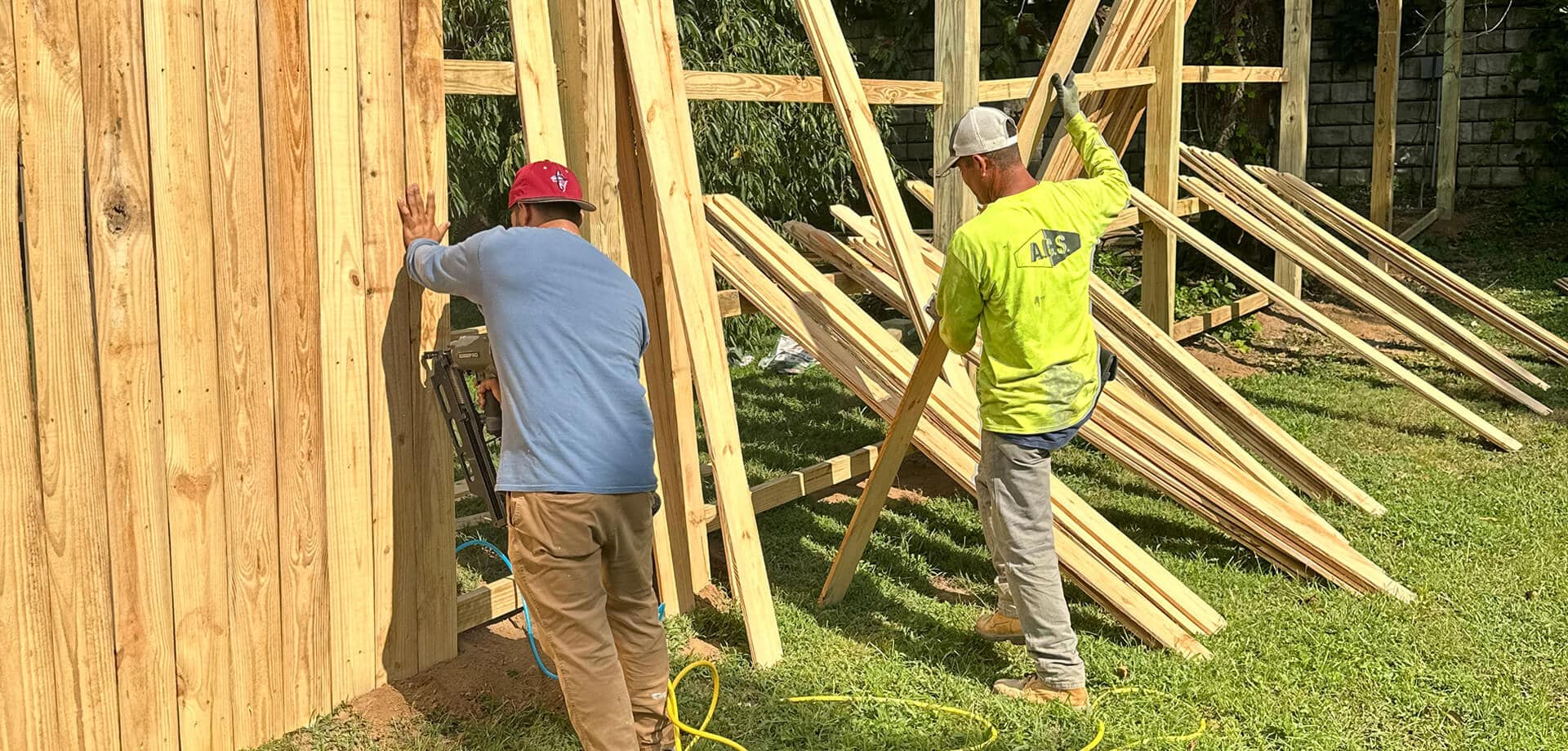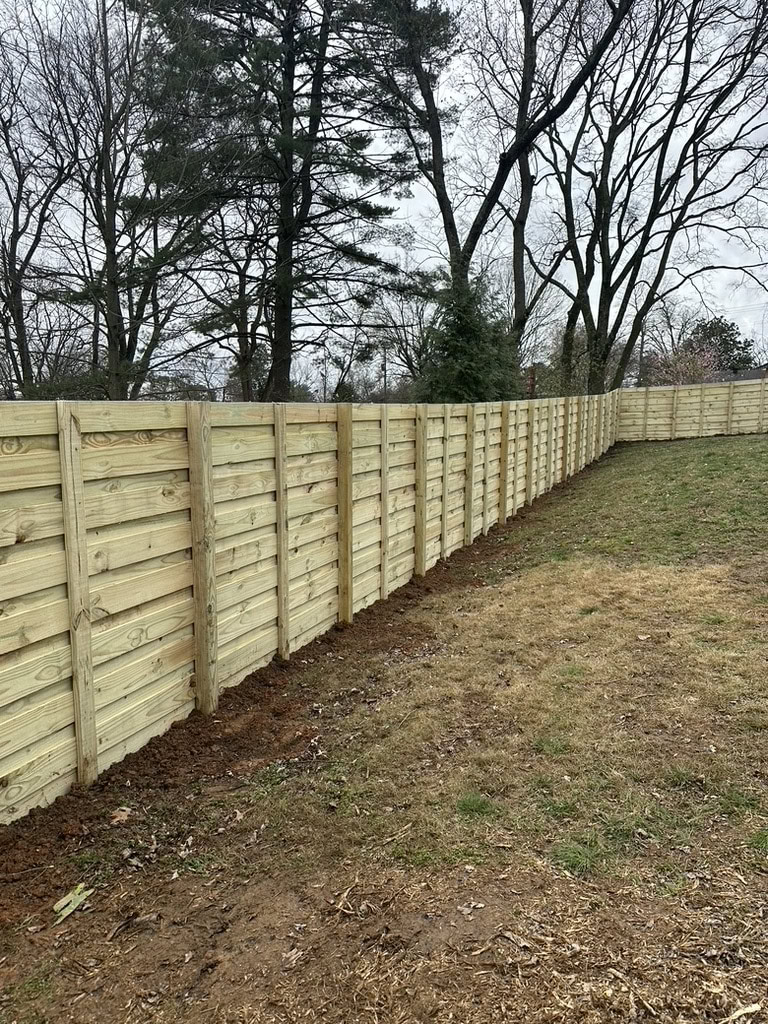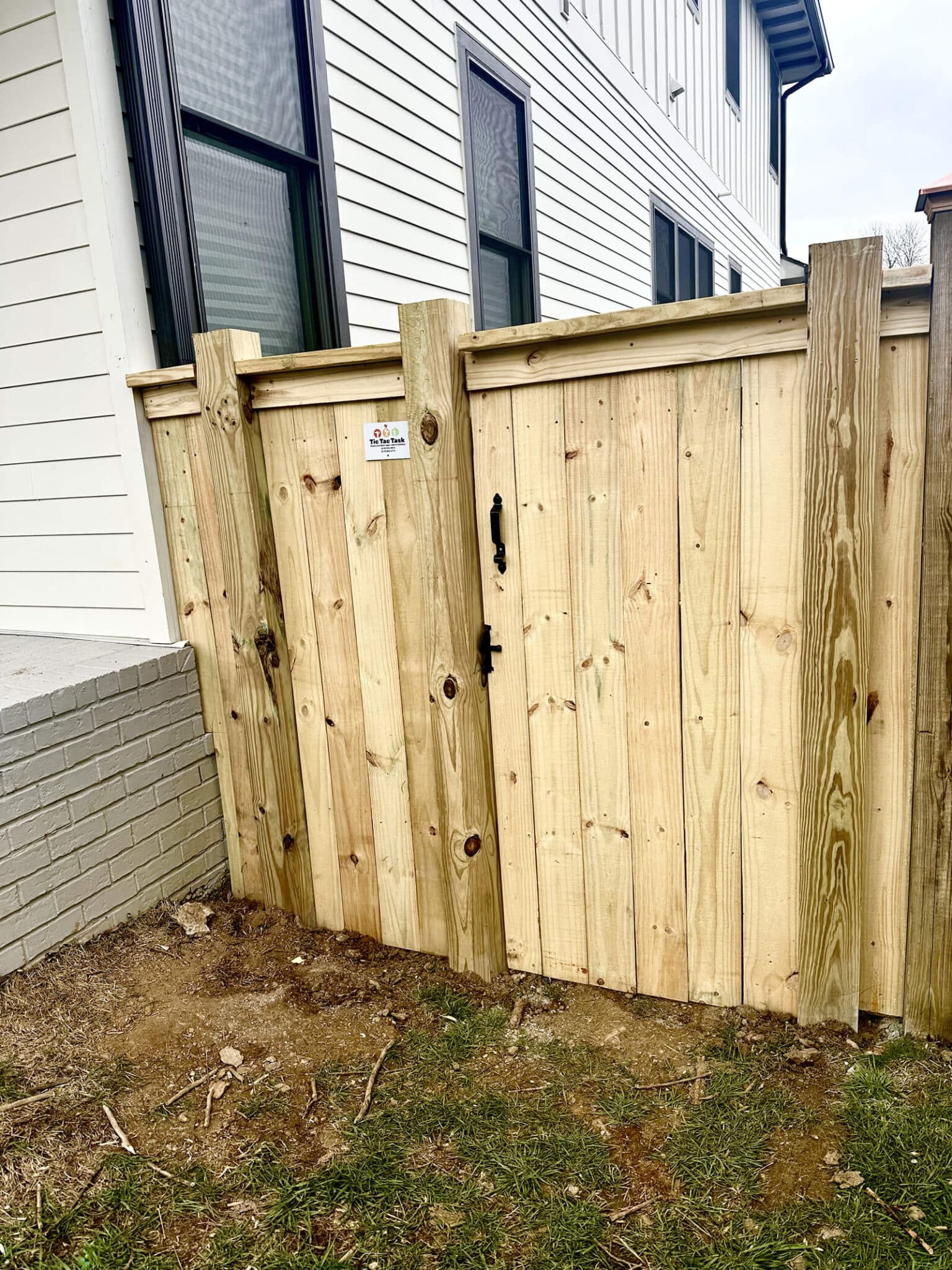Summary:
Vinyl Fence Lifespan: What to Expect
Quality vinyl fencing typically lasts 20 to 30 years, and some premium options can push even longer with proper care. That’s significantly longer than wood fencing, which usually needs replacement every 10-15 years in Tennessee’s climate.
The key word here is “quality.” Not all vinyl fencing is created equal, and the lifespan you get depends heavily on the grade of material you choose and how it’s installed.
What Makes Vinyl Fencing So Durable
Vinyl fencing earns its reputation for longevity through several inherent advantages over traditional materials. Unlike wood, vinyl doesn’t absorb moisture, which means it won’t rot, warp, or become a breeding ground for insects. Tennessee’s humid summers and wet winters can destroy wood fencing within a decade, but vinyl shrugs off these conditions.
The material is also engineered to resist UV rays, which prevents the fading and brittleness that plagued early vinyl products. Modern vinyl fencing includes UV inhibitors and impact modifiers that help it maintain both appearance and structural integrity over decades.
Termites and other pests that can devastate wood fencing simply can’t damage vinyl. You won’t deal with the ongoing battle against insects that wood fence owners face, and you won’t need to worry about animals chewing or clawing through your fence.
Temperature fluctuations that cause wood to expand, contract, and eventually crack don’t affect quality vinyl the same way. While vinyl does expand and contract slightly, proper installation techniques account for this movement, preventing the stress fractures that can shorten a fence’s life.
Factors That Affect Your Vinyl Fence's Lifespan
Vinyl fencing earns its reputation for longevity through several inherent advantages over traditional materials. Unlike wood, vinyl doesn’t absorb moisture, which means it won’t rot, warp, or become a breeding ground for insects. Tennessee’s humid summers and wet winters can destroy wood fencing within a decade, but vinyl shrugs off these conditions.
The material is also engineered to resist UV rays, which prevents the fading and brittleness that plagued early vinyl products. Modern vinyl fencing includes UV inhibitors and impact modifiers that help it maintain both appearance and structural integrity over decades.
Termites and other pests that can devastate wood fencing simply can’t damage vinyl. You won’t deal with the ongoing battle against insects that wood fence owners face, and you won’t need to worry about animals chewing or clawing through your fence.
Temperature fluctuations that cause wood to expand, contract, and eventually crack don’t affect quality vinyl the same way. While vinyl does expand and contract slightly, proper installation techniques account for this movement, preventing the stress fractures that can shorten a fence’s life.
Vinyl Fence Maintenance for Maximum Lifespan
One of vinyl fencing’s biggest advantages is how little maintenance it requires compared to wood or metal alternatives. You won’t spend weekends staining, painting, or treating your fence, but a little care goes a long way toward maximizing its lifespan.
Regular cleaning keeps your fence looking good and functioning well. Most maintenance takes just a few hours per year.
Simple Cleaning That Extends Fence Life
Cleaning vinyl fencing is straightforward, but doing it right prevents issues that could shorten its lifespan. Most dirt and grime wash off with a garden hose, but Tennessee’s pollen and occasional mildew require a bit more attention.
For general cleaning, mix warm water with a small amount of dish soap. Use a soft brush or cloth to scrub away dirt, paying special attention to areas where panels meet posts. Rinse thoroughly with clean water to remove soap residue, which can attract dirt if left behind.
Mildew and algae growth, common in humid climates, need prompt attention. A solution of one part white vinegar to three parts water effectively removes these growths without damaging the vinyl. For stubborn stains, a mixture of baking soda and water creates a gentle abrasive that won’t scratch the surface.
Avoid harsh chemicals, abrasive cleaners, or pressure washers set too high. These can damage the vinyl’s surface or force water into joints where it doesn’t belong. Stick to gentle cleaning methods, and your fence will maintain both its appearance and structural integrity.
Power washing is fine if you keep the pressure reasonable and maintain proper distance. Use a wide spray pattern and keep the nozzle at least 12 inches from the fence surface.
Protecting Your Investment Through Proper Care
Beyond regular cleaning, a few simple practices help ensure your vinyl fence reaches its full lifespan potential. These habits take minimal effort but can add years to your fence’s life.
Inspect your fence seasonally, looking for loose hardware, damaged panels, or posts that seem unstable. Catching problems early prevents minor issues from becoming major repairs. Pay attention to areas where the fence meets gates or other structures, as these connection points experience more stress.
Keep vegetation trimmed back from your fence. While plants won’t damage vinyl like they might wood, overgrown bushes and vines can trap moisture and debris against the fence, creating conditions for staining or mildew growth. They can also put physical stress on panels during storms.
Address any damage promptly. Small cracks or loose components can worsen over time, especially during temperature changes or severe weather. Most vinyl fence contractors can repair minor damage quickly and affordably if you don’t wait until it becomes a bigger problem.
Winter care in Tennessee is minimal but important. Remove snow buildup that could put excessive weight on horizontal rails, and be careful when using ice melt products near your fence. Some deicing chemicals can cause staining or surface damage over time.
Making Your Vinyl Fence Investment Last
Quality vinyl fencing offers 20-30 years of reliable service with minimal maintenance, making it an excellent long-term investment for Tennessee properties. The key to reaching that full lifespan lies in choosing quality materials and professional installation from the start.
With proper care and attention to the factors that affect durability, your vinyl fence will provide decades of privacy, security, and property enhancement. When you’re ready to explore vinyl fence installation options that maximize longevity and value, we can help you make the right choices for your property and budget.

